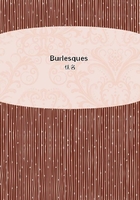
第129章
Seeing the imminency of the danger, and that money, well applied, is often more efficacious than the conqueror's sword, the King's Ministers were anxious that he should devote a part of his savings to the carrying on of the war. But, with the cautiousness of age, the monarch declined this offer; he preferred, he said, throwing himself upon his faithful people, who, he was sure, would meet, as became them, the coming exigency. The Chambers met his appeal with their usual devotion. At a solemn convocation of those legislative bodies, the King, surrounded by his family, explained the circumstances and the danger. His Majesty, his family, his Ministers, and the two Chambers, then burst into tears, according to immemorial usage, and raising their hands to the ceiling, swore eternal fidelity to the dynasty and to France, and embraced each other affectingly all round.
It need not be said that in the course of that evening two hundred Deputies of the Left left Paris, and joined the Prince John Thomas Napoleon, who was now advanced as far as Dijon: two hundred and fifty-three (of the Right, the Centre, and Round the Corner,)similarly quitted the capital to pay their homage to the Duke of Bordeaux. They were followed, according to their several political predilections, by the various Ministers and dignitaries of the State. The only Minister who remained in Paris was Marshal Thiers, Prince of Waterloo (he had defeated the English in the very field where they had obtained formerly a success, though the victory was as usual claimed by the Irish Brigade); but age had ruined the health and diminished the immense strength of that gigantic leader, and it is said his only reason for remaining in Paris was because a fit of the gout kept him in bed.
The capital was entirely tranquil. The theatres and cafes were open as usual, and the masked balls attended with great enthusiasm:
confiding in their hundred and twenty-four forts, the light-minded people had nothing to fear.
Except in the way of money, the King left nothing undone to conciliate his people. He even went among them with his umbrella;but they were little touched with that mark of confidence. He shook hands with everybody; he distributed crosses of the Legion of Honor in such multitudes, that red ribbon rose two hundred per cent in the market (by which his Majesty, who speculated in the article, cleared a tolerable sum of money). But these blandishments and honors had little effect upon an apathetic people; and the enemy of the Orleans dynasty, the fashionable young nobles of the Henriquinquiste party, wore gloves perpetually, for fear (they said) that they should be obliged to shake hands with the best of kings; while the republicans adopted coats without button-holes, lest they should be forced to hang red ribbons in them. The funds did not fluctuate in the least.
The proclamations of the several pretenders had had their effect.
The young men of the schools and the estaminets (celebrated places of public education) allured by the noble words of Prince Napoleon, "Liberty, equality, war all over the world!" flocked to his standard in considerable numbers: while the noblesse naturally hastened to offer their allegiance to the legitimate descendant of Saint Louis.
And truly, never was there seen a more brilliant chivalry than that collected round the gallant Prince Henry! There was not a man in his army but had lacquered boots and fresh white kid-gloves at morning and evening parade. The fantastic and effeminate but brave and faithful troops were numbered off into different legions: there was the Fleur-d'Orange regiment; the Eau-de-Rose battalion; the Violet-Pomatum volunteers; the Eau-de-Cologne cavalry--according to the different scents which they affected. Most of the warriors wore lace ruffles; all powder and pigtails, as in the real days of chivalry. A band of heavy dragoons under the command of Count Alfred de Horsay made themselves conspicuous for their discipline, cruelty, and the admirable cut of their coats; and with these celebrated horsemen came from England the illustrious Duke of Jenkins with his superb footmen. They were all six feet high.
They all wore bouquets of the richest flowers: they wore bags, their hair slightly powdered, brilliant shoulder-knots, and cocked-hats laced with gold. They wore the tight knee-pantaloon of velveteen peculiar to this portion of the British infantry: and their legs were so superb, that the Duke of Bordeaux, embracing with tears their admirable leader on parade, said, "Jenkins, France never saw such calves until now." The weapon of this tremendous militia was an immense club or cane, reaching from the sole of the foot to the nose, and heavily mounted with gold. Nothing could stand before this terrific weapon, and the breast-plates and plumed morions of the French cuirassiers would have been undoubtedly crushed beneath them, had they ever met in mortal combat. Between this part of the Prince's forces and the Irish auxiliaries there was a deadly animosity. Alas, there always is such in camps! The sons of Albion had not forgotten the day when the children of Erin had been subject to their devastating sway.
The uniform of the latter was various--the rich stuff called corps-du-roy (worn by Coeur de Lion at Agincourt) formed their lower habiliments for the most part: the national frieze* yielded them tail-coats. The latter was generally torn in a fantastic manner at the elbows, skirts, and collars, and fastened with every variety of button, tape, and string. Their weapons were the caubeen, the alpeen, and the doodeen of the country--the latter a short but dreadful weapon of offence. At the demise of the venerable Theobald Mathew, the nation had laid aside its habit of temperance, and universal intoxication betokened their grief; it became afterwards their constant habit. Thus do men ever return to the haunts of their childhood: such a power has fond memory over us!